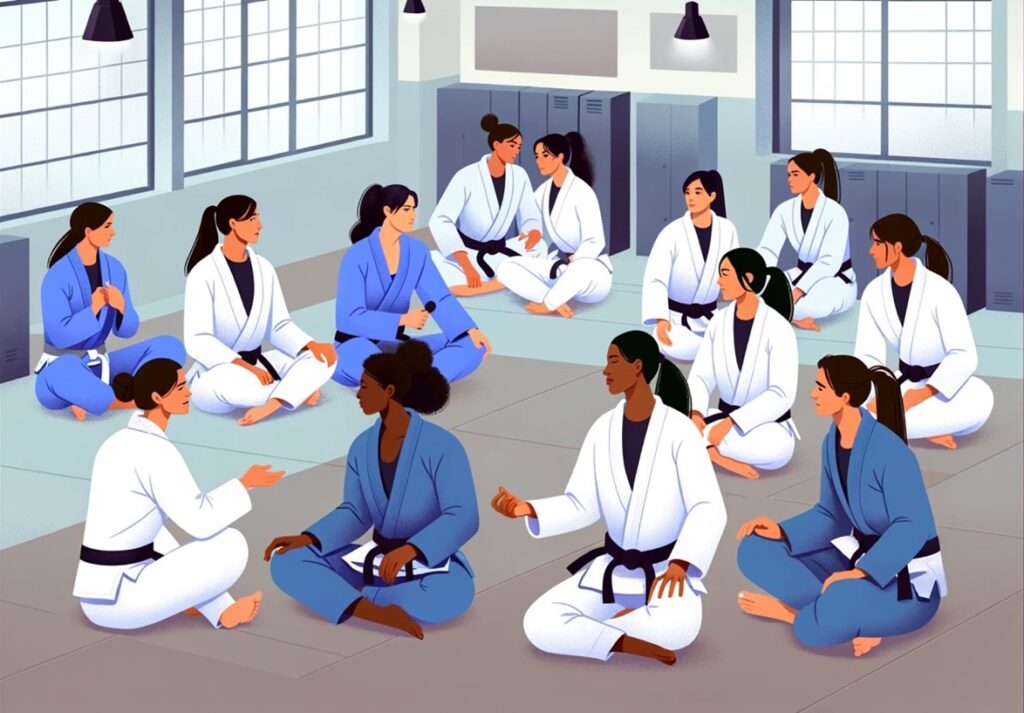Introduction
Brazilian Jiu-Jitsu (BJJ), traditionally dominated by men, is experiencing a paradigm shift. More women are stepping onto the mats, breaking barriers, and forging a strong community within the sport. This blog post celebrates the rise of women in BJJ, exploring their challenges, triumphs, and the impact they are making in the martial arts world.

The Rise of Women in BJJ
BJJ has seen a significant increase in female participation over the years. Women are not only joining the sport in larger numbers but are also excelling at high levels of competition. This rise can be attributed to the inclusive nature of BJJ, its effectiveness as a form of self-defense, and the empowering environment it offers.
Breaking Barriers in a Male-Dominated Sport
The journey of women in BJJ hasn’t been without its challenges. Facing stereotypes, unequal opportunities, and at times, a lack of representation, female BJJ practitioners have continually broken down barriers. Through determination and skill, they have earned respect and recognition, proving that BJJ is not just a male sport, but a martial art for everyone.
The Importance of Community
One of the most significant aspects of the rise of women in BJJ is the strong sense of community that has developed. Women’s classes, seminars, and open mats have become more common, providing spaces where female practitioners can train comfortably, share experiences, and support each other. This community aspect has been pivotal in encouraging more women to start and continue their BJJ journey.
Role Models and Inspiration
The success of female BJJ athletes at the highest levels of competition has been inspirational. Figures like Mackenzie Dern, Gabi Garcia, and Kyra Gracie have become role models, showcasing the possibilities for women in the sport. Their achievements have motivated countless women to pursue BJJ, either as a hobby or at a competitive level.
The Future of Women in BJJ
The future looks bright for women in BJJ. With growing numbers and an ever-strengthening community, women are not just participating but also influencing the sport in significant ways. The increased visibility of female athletes is inspiring the next generation of BJJ practitioners, ensuring that the sport continues to grow in diversity and inclusivity.
Conclusion
The rise of women in Brazilian Jiu-Jitsu is a testament to the sport’s universal appeal and the strength of the women who practice it. As they continue to break barriers and build a supportive community, the landscape of BJJ is evolving for the better. Women in BJJ are not just participants; they are influential leaders, shaping the future of the sport.
